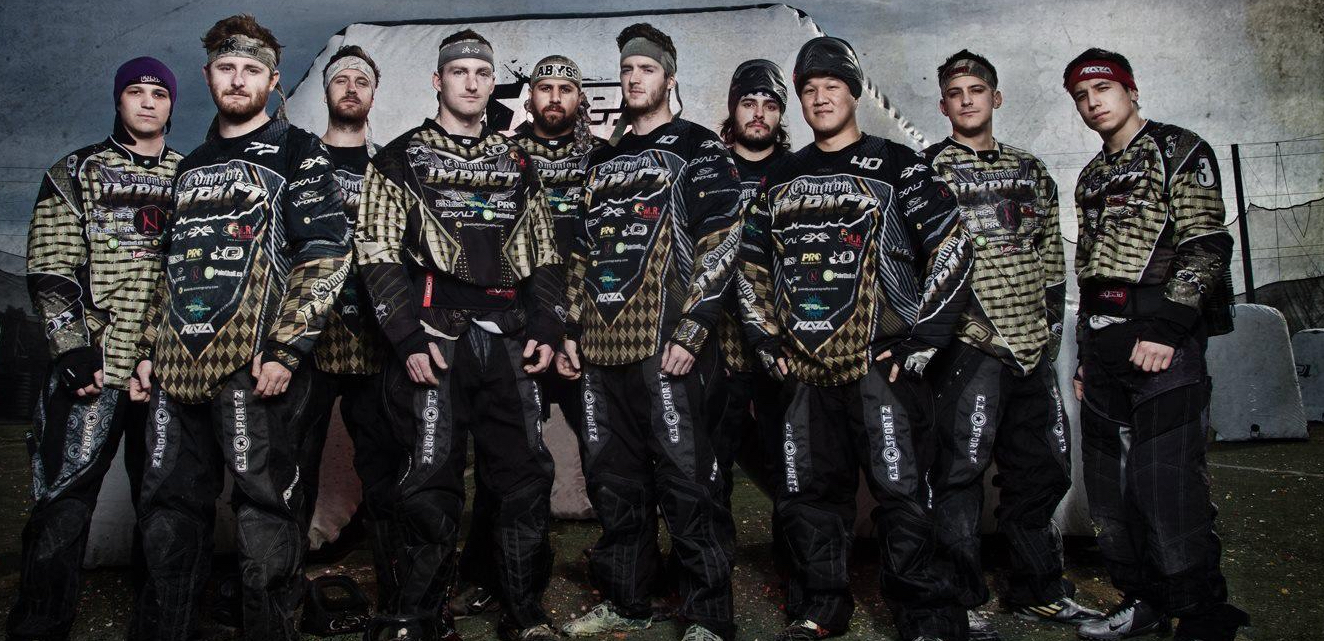Edmonton Impact, Canada’s first professional paintball team, started as a family outing.
Brothers Zachary and Zane Yachimec played paintball every weekend in their preteens after trying the sport with their father, Bart, during a family vacation in Hawaii. Despite their father’s aversion to firearms, it didn’t take long for him to see paintball is safer than most other sports: With proper gear, the worst injuries are bruises or sprained ankles, as opposed to the torn ligaments, broken bones or concussions common in hockey, football and other high-impact sports.
Even the militaristic edge often associated with firearms is absent from the sport. Some paintball courses, such as Young Guns Paintball near Stony Plain, have players crawling through ravines, behind dugouts and cars, or protecting a full-scale model helicopter, but professional paintball courses look less like bombed-out cities and more like bouncy castles. Inflatable pylons litter soccer-sized fields, creating cover for players dressed like NASCAR racers in light fabric and a lot of sponsor logos.
Edmonton Impact slowly rose through the ranks from being a third-division team to one of the most popular and consistently winning clubs in the pro league. It’s not only taken home championships such as Paintball World Cup Asia 2012 last November, but also changed the game’s pace. Zachary Yachimec, now 24 and currently earning a Bachelor of Commerce from the University of Alberta, cites stereotypical Canadian passiveness as key in dominating American teams. “When we went pro,” explains Zachary, “the thought was the most aggressive team wins, but instead we would sit back and catch guys trying to make moves. A lot of teams started adapting to that style and the game really slowed down.”
Zachary and Zane continue to play together, and their father coaches and owns their team. While becoming a professional paintballer doesn’t mean you can put a down payment on a house, it does pay a handsome fee for each tournament played, and travel expenses – for tournaments throughout the U.S., Europe and Asia – are covered.
For players like Zachary and Zane, it’s not about paintball becoming a career. It’s about helping others to take the sport seriously and being exceptional at something they enjoy. “When you win [an international tournament] , for that day you’ve become the best paintball team in the world. And all that hard work you did leading up to that point, it’s not in vain anymore,” says Zachary.
